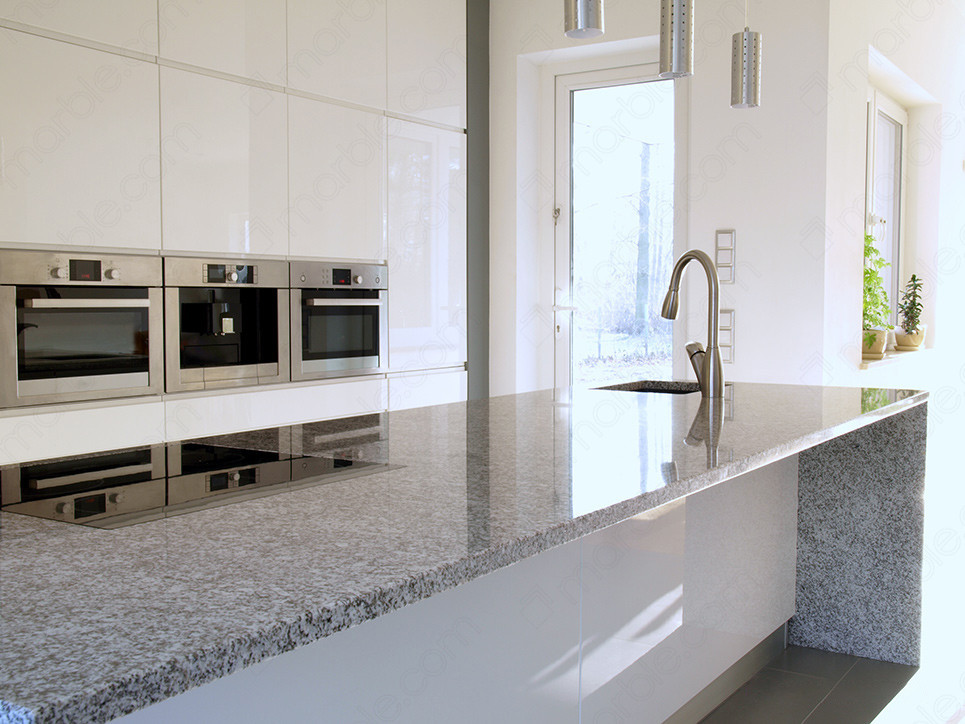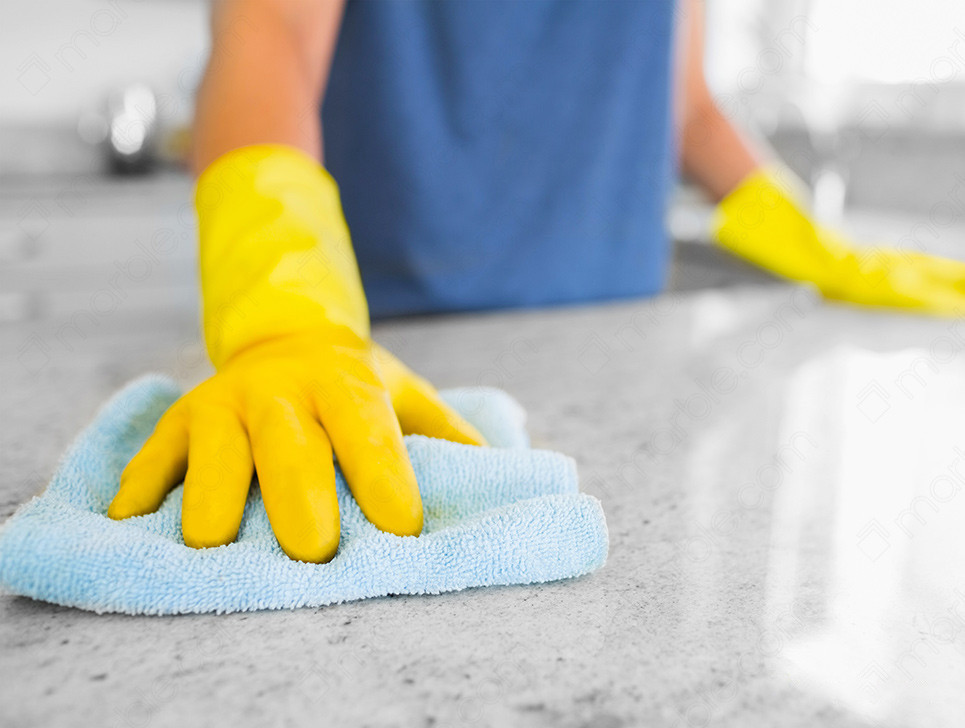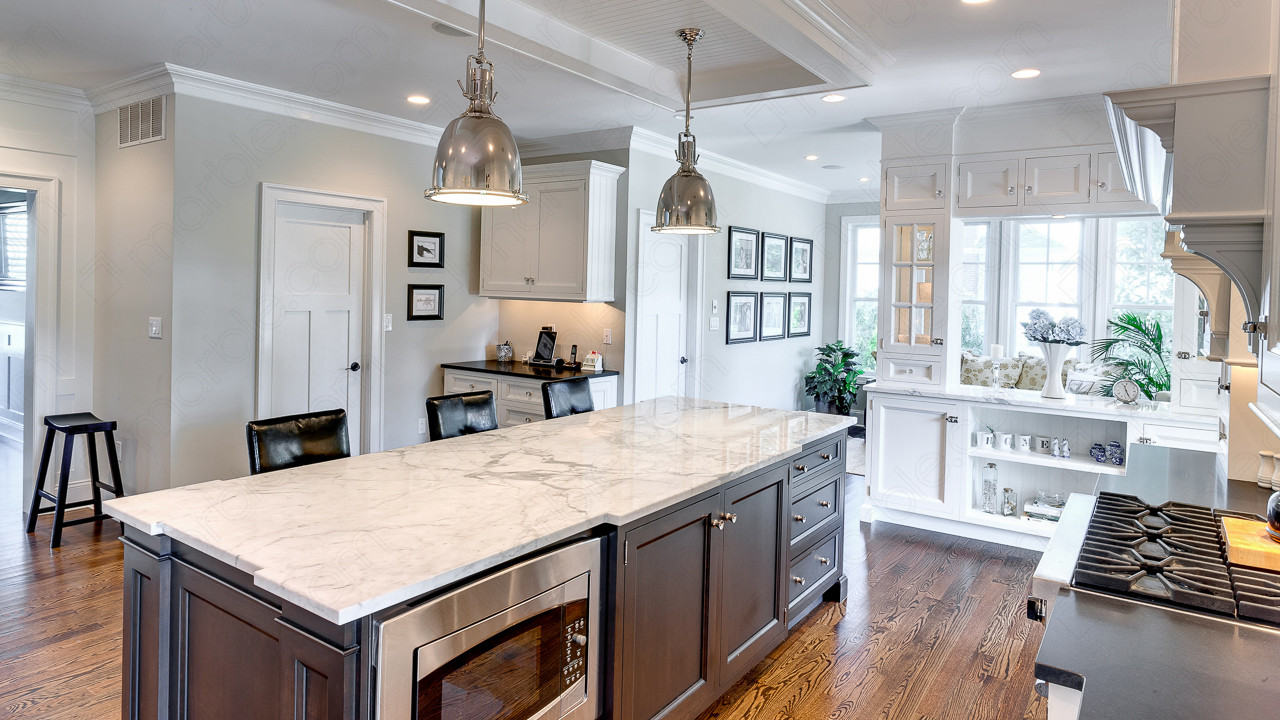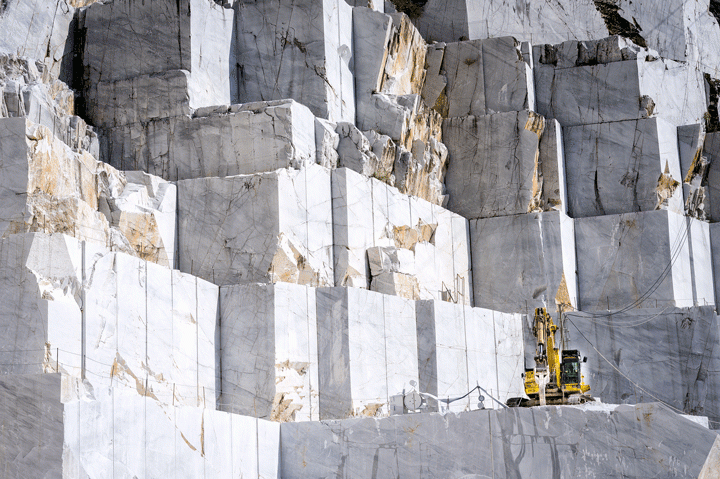Table of Contents
Granite is one of the most beautiful and durable materials available for countertop surfaces. Sleek and luxurious, and capable of resisting heat, staining, and scratching, it is hard to go wrong with this gorgeous natural stone.
While it is in fact scratch-resistant, it is not completely scratch-proof. Although rare in material as durable as this, accidents can still happen even in the most careful of kitchens, and your precious countertops could be temporarily disfigured. Luckily, there are ways to fix shallow scratches yourself.
[get_quote]
Important Information Before You Begin
Before you begin, be aware that while superficial scratches can be fixed by the homeowner, anything deeper than that should be fixed by a professional. There are many things that can go wrong while removing scratches in granite, and the issue can be easily made worse. For example, if sanding is done incorrectly, a stronger indentation can be produced or a polished finish could be permanently ruined. Be self-aware of your own ability and don’t jump into this project if you do not feel ready. You may be tempted to attempt to save money by completing the project yourself, but you may be making the project much much more expensive by not going to a professional to begin with.

What is Granite?
Granite is one of the most durable stones available for countertops and is widely used in both residential and commercial projects. It is a naturally occurring stone and is one of the most common igneous rocks in the world. It was formed through the cooling of lava over millions of years.
It is composed of many natural quartz and feldspar mineral deposits. Granite is found throughout the planet, with quarries all over the world. It is known for its high durability, being considered stain, heat, and scratch-resistant. Proper care includes a daily cleaning using soapy water solution as well as periodic resealing every six months to a year.
Granite Durability
Granite is highly durable and is well-known for the many kinds of damage that it is resistant to. While some materials may be able to withstand one or two types of damage, granite is resistant to all three of the most common types: staining, heat, and scratching.
This natural stone is stain resistant, as long as a sealant is properly applied. Without this sealant, liquids may be absorbed into the stone and damage may occur. Even with a sealant, it is recommended that liquids be cleaned up as soon as possible.
[get_quote]
It is also heat resistant. As a natural stone, it can remain durable against extremely high temperatures up to 480 or more degrees Fahrenheit. While homeowners should still take precautions from putting hot pots and pans on top of granite, it is considered one of the best materials around in terms of heat resistance.
Lastly, granite is considered scratch-resistant. It sits at a 6 or 7 on the Mohs hardness scale, a scientific scale created to measure the hardness of a material. Stones can be scratched by items sitting at a higher level on the scale, for example, a shallow scratch on granite could be made by a diamond ring, as diamonds sit at a 10 on the scale.
While it is considered scratch-resistant, it is not scratch-proof. Accidents can still happen, even in kitchens that are babied by their owners. If a scratch does occur, there is no need to panic, as there are solutions. While anything deeper than surface level should be handled by a professional, a superficial scratch can be removed by the homeowners themselves following these helpful tips.

How to Remove a Scratch From Granite
Extremely minor scratches can be removed in a DIY job.
First, create a cleaning solution. Combine warm water with mild dish soap. Then, wet a soft cloth with this solution and gently rub the area of the scratch. Do not rub the area too hard or further damage may be caused. Next, after the area is wiped clean, rinse the area thoroughly with warm water. After, buff the area dry with a new dry and soft cloth in circular motions. Lastly, reapply your protective sealant as the sealant’s instructions suggest.
These steps should help to remove extremely superficial scratches on your granite surface. If this process does not remove the scratch, you can also try to gently sand the surface with fine-grain sandpaper or #0000 steel wool. Be extremely careful, as the surface could easily be ruined by the sandpaper if buffed too hard. If neither method works, seek professional assistance. We do not recommend attempting to remove larger scratches on your own.
If you have a stone countertop with a simple design, you can also choose to conceal the scratch with a permanent marker. Choose a marker in a hue that matches your granite, and apply the color along the scratch. Then, wipe the scratch lightly with denatured alcohol after the marker has dried in order to remove excess marker.
How to Prevent Scratches on Granite
Granite will not scratch easily, but accidents can happen. There is no true way to fully prevent scratches other than generally being mindful when doing activities near your granite countertops.
1. Use a cutting board
When cooking in your kitchen, it can be easy to forget about your countertops and the care they require. Luckily, granite is highly durable and will allow you to focus on your meal preparation. All you need to remember to do is use a cutting board, which, likely, you are already doing. You may assume that because granite is typically harder than kitchen knives, you can cut right on top, however, that is not true. Damage may still be caused to both your surface as well as your knives. Cutting boards will prevent any potential slips of the knife which may cause a scratch on your counter.
2. Be careful with heavy objects
Another way to prevent potential damage is to take care when using heavy objects around your countertops. Place them carefully on your counters, and if there is potential for scratches through sharp edges, place a soft material between the object and your counter. Do not drag a heavy object across the surface, especially if this soft material is not between the object and your counter. Dropping a heavy object on your counter may cause scratching, or even worse, cracking or chipping.
3. Don't use abrasive materials like rough sponge
It may feel beneficial to put all your elbow grease into scrubbing your countertop
but actually, granite should be cleaned carefully and delicately. Do not use abrasive materials like rough sponges or steel wool to scrub the surface of your granite countertops as it may cause damage. Although unlikely, it is better to be safe than sorry.
[get_quote]
Conclusion
Granite scratches can be frustrating, but don’t let them bring you down! Superficial scratches can be easily fixed by homeowners, while professionals can handle deeper scratches. This is a highly durable stone, but accidents can still happen, and when they do, you’ll be prepared. There are also methods to prevent further damage, all of which include simply being mindful of your activities near your countertops. Although getting a scratch on your new countertop may feel like a huge deal, with the proper steps and utilizing a professional when needed, your countertop will look good as new.
















 The article helped me immensely
The article helped me immensely
 I’m now more informed on the subject
I’m now more informed on the subject
 I have questions about Marble.com
I have questions about Marble.com
 The article was not accurate at all
The article was not accurate at all
 There is a serious lack of information
There is a serious lack of information
 I have questions about Marble.com
I have questions about Marble.com